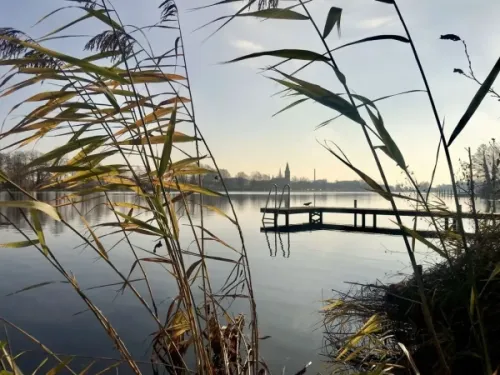Benefits of cold water immersion
Relieves depression and boosts the immune system
Don't forget to pack
Hot tea, snacks & lots of layers
Number of lakes in Germany
~15,000 to 30,000
By the Staycation Collection team
Wild swimming 101
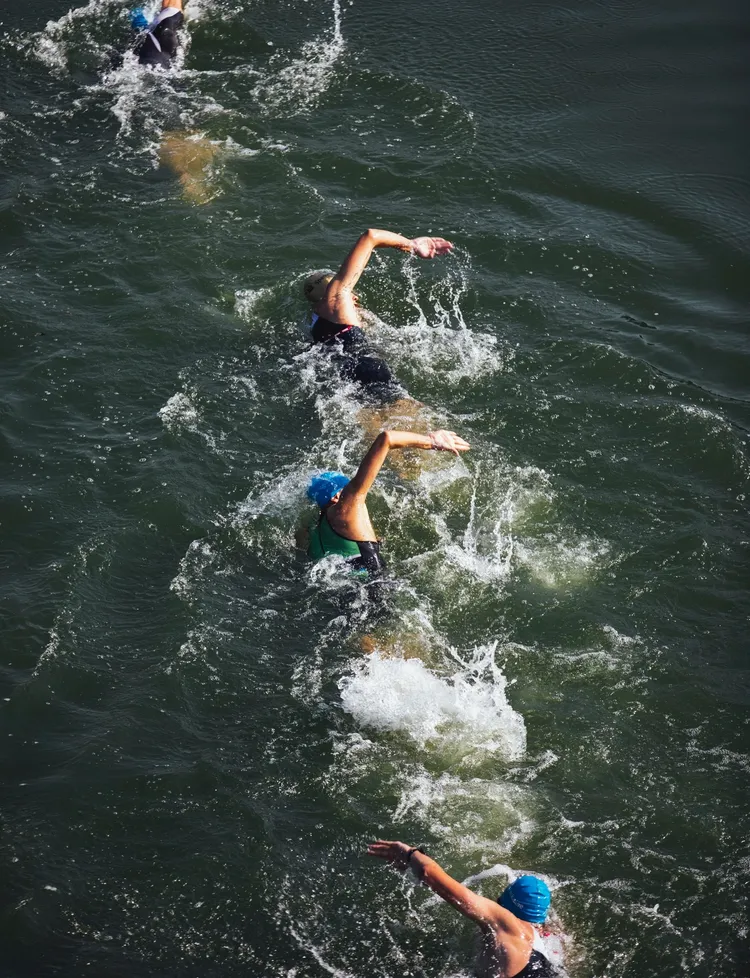
Healing powers of nature
In the past few years, the term wild swimming (or open water swimming) has gained popularity, but it effectively just means swimming somewhere that is not a swimming pool.
For of all you water babies, like me, there’s something intuitive about slipping beneath the surface of water that hasn’t been pumped full of chemicals, but there is still something slightly naughty, a little bit scary and wonderfully invigorating about lowering your body into a lake or a river.
Once you’re over the initial shock of the cold water, your body starts to feel free and your mind feels energised - and this sensation isn’t imagined, there are scientifically proven psychological and physiological benefits to wild swimming. In short, cold water immersion provides a sense of elation and relaxation, soothes muscle aches, relieves depression and boosts the immune system, not bad, huh!
Don't Get Fomo
Fernweh Newsletter
Discover Germany, beyond its tourist spots: get adventure tips and day trip inspiration straight to your inbox. Every month, for free. Sign up so you don’t miss out.
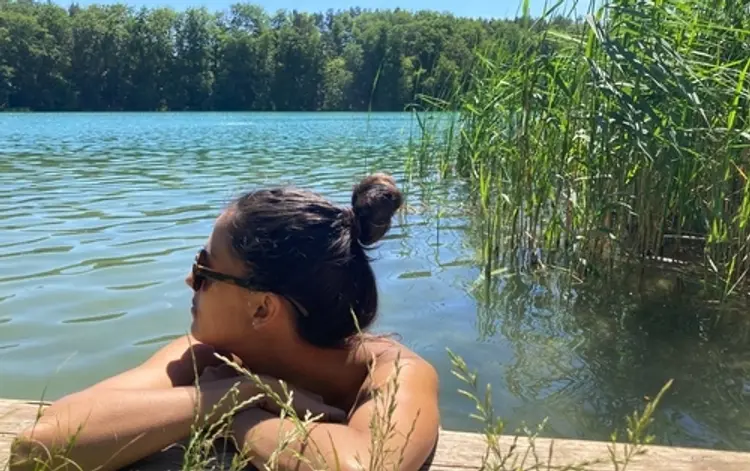
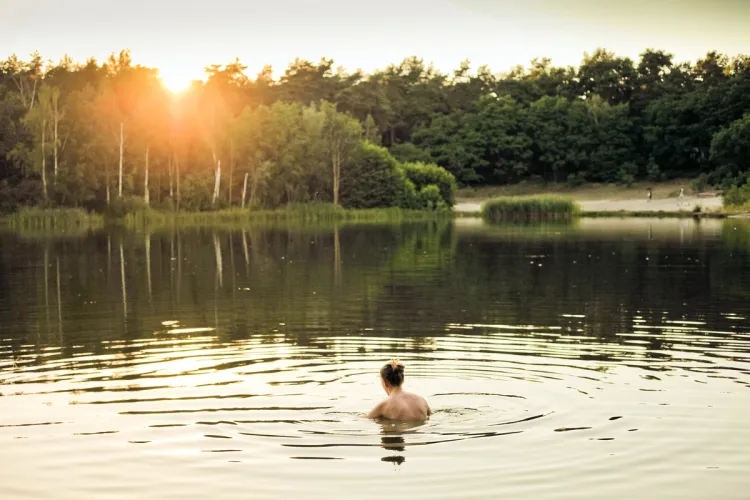
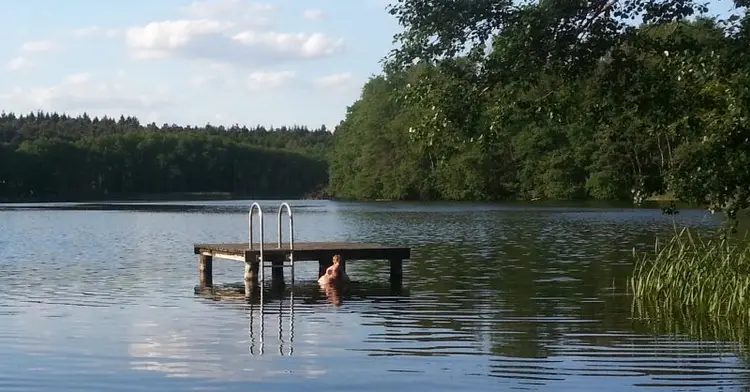
Open-water swimming: the oldest newest trend
While wild swimming may seem like a new trend, it’s an age-old activity, loved by people such as Charles Darwin and Florence Nightingale and was widely enjoyed by the ancient Romans and Turks. The reason it’s so beloved is due to its capacity to free us from ourselves - to me, wild swimming is the perfect antidote to cabin fever!
But what actually happens in your body when you wild swim?
Open water swimming is as good for us as it feels, and the health benefits of wild swimming include:
- Increased mood and libido: you benefit from a natural endorphin high
- Decreased muscle soreness: vasodilation in your extremities aids in removing toxins caused by lactic acid
- Boosted immune system: thanks to endorphins and stimulated circulation
- Reduced stress: being immersed in nature reduces your cortisol (stress hormone) levels
- Clarity of mind: being present and focusing on body sensations allows the mind to slow down
Plus those who swim in open water frequently start the process of cold adaptation (recently popularised by Wim Hof, aka the Ice Man). This means that - through repeated open-water swimming in cold water - it is possible to decrease blood pressure and cholesterol, reduce fat disposition and inhibit blood clotting.
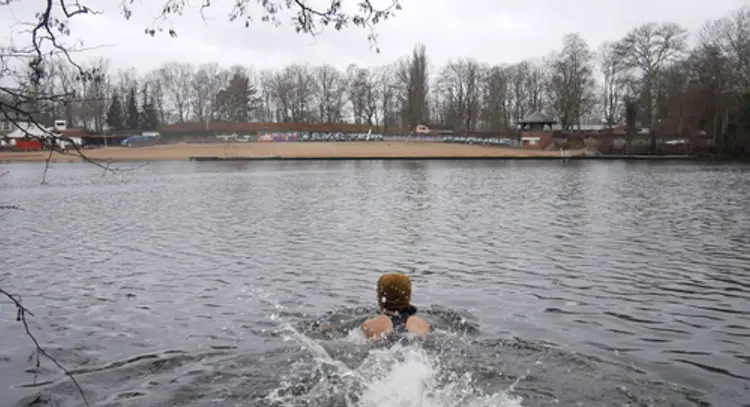
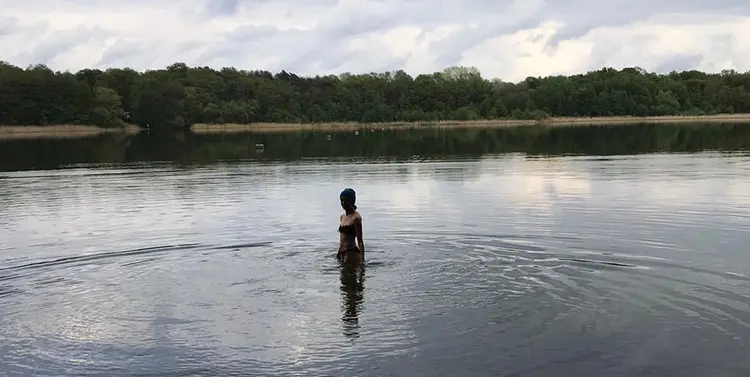
Tips for wild swimming
We’re incredibly lucky that Germany is full of lakes perfect for wild swimming - Brandenburg alone has over 3000 lakes - but what should you be aware of before you take the plunge?
1. Do not swim in canals, rivers in the city, stagnant lakes or reedy shallow water
2. Avoid getting too cold: warm up before, take deep breaths during and wrap up straight afterwards
3. Never swim where there’s lots of green-blue algae
4. Don’t swim alone, and check on those you’re swimming with
5. If you want to jump into the water, thoroughly check the depth and obstructions first
6. Decide where you will get in and get out before you begin swimming
7. Wear a colourful hat so you can be seen and wear water shoes if you can
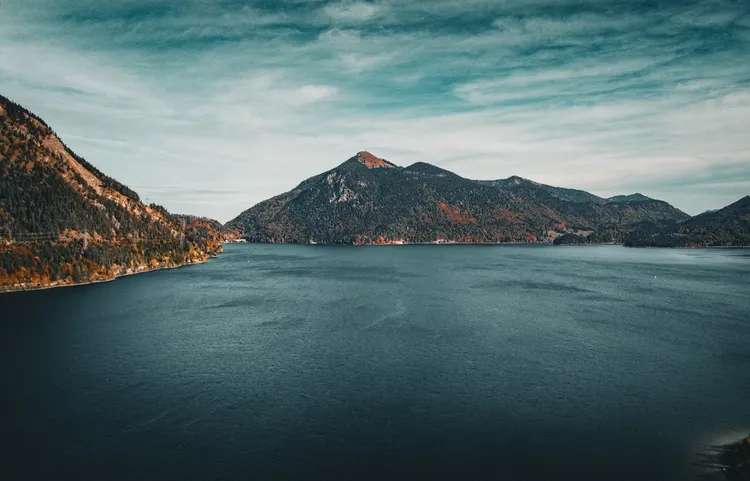
The best wild swimming places in Germany (in humble opinion)
1. Tonsee, Groß Köris (Brandenburg)
2. Plötzensee (Berlin)
3. Liepnitzsee (Brandenburg
4. Markkleeberg See (Saxony)
5. Dove-Elbe (Hamburg)
6. Walchensee (Barvaria)
7. Hellsee (Brandenburg)
8. Timmendorfer Strand (Schleswig-Holstein)
9. Feisnecksee (Mecklenburg-Vorpommern)
10. Edersee (Hesse)
11. Kaarster See (NRW)
12. Laacher See (Rhineland Palatinate)
Where would you add to the list? Let us know!

